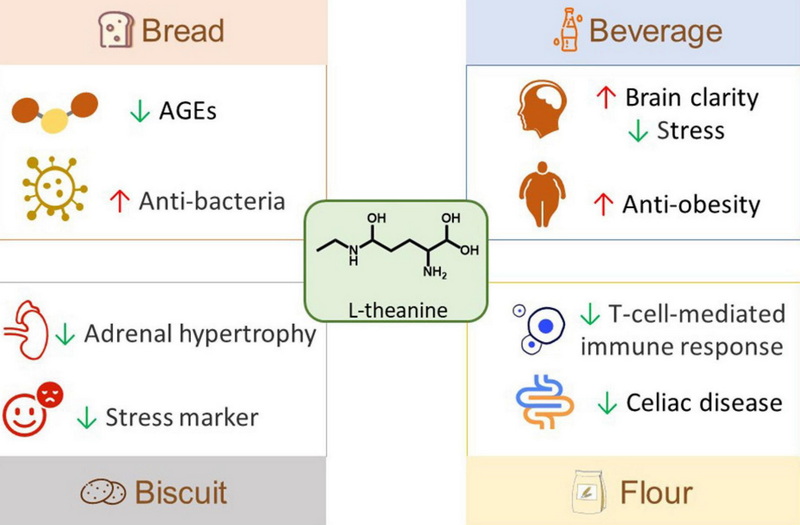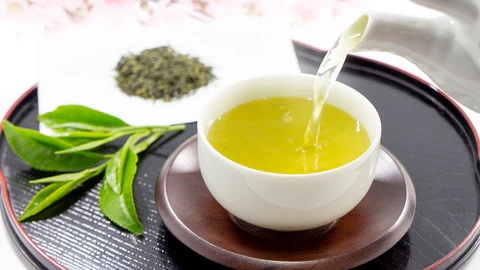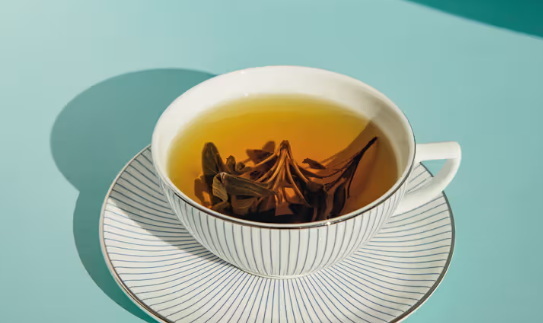Content Menu
● Understanding Green Tea and Its Components
>> The Role of L-Theanine
● Bone Health: An Overview
>> Importance of Bone Density
● The Connection Between Green Tea and Bone Health
>> 1. Antioxidant Properties
>> 2. Modulation of Bone Metabolism
>> 3. Clinical Evidence
● How L-Theanine Specifically Supports Bone Health
>> 1. Stress Reduction and Bone Health
>> 2. Enhancing Nutrient Absorption
● Practical Implications: How to Incorporate Green Tea into Your Diet
● Nutritional Considerations for Bone Health
>> 1. Calcium and Vitamin D
>> 2. Omega-3 Fatty Acids
>> 3. Magnesium and Potassium
● Lifestyle Factors Supporting Bone Health
>> 1. Exercise
>> 2. Smoking and Alcohol Consumption
>> 3. Sleep and Stress Management
● The Future of Green Tea Research in Bone Health
● Integrating Green Tea with Other Natural Remedies
● Conclusion
● FAQs
>> 1. What is the main benefit of L-theanine in green tea?
>> 2. How does green tea affect bone density?
>> 3. Can I get enough L-theanine from drinking green tea?
>> 4. Is there a specific type of green tea recommended for bone health?
>> 5. Are there any side effects associated with consuming too much green tea?
● Citations:
Green tea has long been celebrated for its numerous health benefits, particularly due to its rich content of bioactive compounds, including polyphenols and amino acids such as L-theanine. Recent studies have highlighted the potential of green tea, specifically its L-theanine component, in promoting bone health. This article explores how L-theanine and other constituents of green tea contribute to maintaining and improving bone density and overall skeletal health.

Understanding Green Tea and Its Components
Green tea is derived from the leaves of the Camellia sinensis plant and is known for its high concentration of antioxidants, particularly catechins. Among these, epigallocatechin gallate (EGCG) is the most studied for its health benefits. Additionally, L-theanine, an amino acid unique to tea, is recognized for its calming effects and potential cognitive enhancements.
The Role of L-Theanine
L-theanine accounts for about 60% of the amino acids in green tea. It is known to promote relaxation without sedation, enhancing mood and cognitive function. Studies have shown that L-theanine can help reduce stress levels by increasing the production of neurotransmitters such as GABA, serotonin, and dopamine.
Bone Health: An Overview
Bone health is crucial for overall well-being, particularly as individuals age. Osteoporosis, a condition characterized by weak and brittle bones, affects millions worldwide. Factors contributing to osteoporosis include hormonal changes, nutritional deficiencies, and lifestyle choices.
Importance of Bone Density
Bone mineral density (BMD) is a critical indicator of bone health. Higher BMD correlates with a lower risk of fractures and osteoporosis. Maintaining or improving BMD can significantly reduce the risk associated with aging bones.
The Connection Between Green Tea and Bone Health
Research indicates that green tea consumption may positively affect bone health through various mechanisms:
1. Antioxidant Properties
The antioxidants found in green tea help combat oxidative stress, which can lead to bone loss by damaging osteoblasts (bone-forming cells). By reducing oxidative damage, green tea may promote healthier bone formation.
2. Modulation of Bone Metabolism
Green tea polyphenols have been shown to influence the activity of osteoblasts and osteoclasts (bone-resorbing cells). For instance:
- Increased Osteoblast Activity: Studies have demonstrated that compounds like EGCG can enhance osteoblast proliferation and differentiation.
- Decreased Osteoclast Formation: Green tea components may inhibit osteoclastogenesis, thus reducing bone resorption.
3. Clinical Evidence
Several clinical studies support the benefits of green tea on bone health:
- A study involving postmenopausal women showed that those who consumed green tea regularly had higher BMD compared to non-consumers.
- Another study indicated that specific components in green tea could promote bone growth by up to 79% in cultured cells.
How L-Theanine Specifically Supports Bone Health
While much attention has been given to catechins like EGCG in green tea's role in bone health, L-theanine also contributes positively:
1. Stress Reduction and Bone Health
Chronic stress can negatively impact bone health by increasing cortisol levels, which may lead to decreased bone density. By promoting relaxation and reducing stress through its neuroprotective effects, L-theanine indirectly supports maintaining healthy bones.
2. Enhancing Nutrient Absorption
L-theanine may improve gut health and nutrient absorption, ensuring that essential vitamins and minerals vital for bone health—such as calcium and vitamin D—are adequately absorbed by the body.
Practical Implications: How to Incorporate Green Tea into Your Diet
To reap the benefits of green tea for bone health:
- Daily Consumption: Aim for 2-3 cups of green tea daily.
- Supplementation: Consider high-quality supplements containing concentrated L-theanine if you struggle to consume enough green tea.
Green Tea Preparation

Nutritional Considerations for Bone Health
In addition to green tea, a well-rounded diet rich in nutrients essential for bone health is crucial:
1. Calcium and Vitamin D
These are critical for maintaining strong bones. Include calcium-rich foods like dairy, leafy greens, and fortified plant-based milk in your diet. Vitamin D can be obtained through sunlight exposure, supplements, or fortified foods.
2. Omega-3 Fatty Acids
Found in fish, nuts, and seeds, omega-3s support inflammation reduction and overall health, which indirectly benefits bone health.
3. Magnesium and Potassium
These minerals are important for bone mineralization and density. Include magnesium-rich foods like dark chocolate and nuts, and potassium-rich foods like bananas and avocados in your diet.
Lifestyle Factors Supporting Bone Health
Beyond diet, several lifestyle choices can enhance bone health:
1. Exercise
Regular physical activity, particularly weight-bearing exercises like walking or running, can significantly improve BMD.
2. Smoking and Alcohol Consumption
Both are detrimental to bone health. Quitting smoking and limiting alcohol intake can help maintain stronger bones.
3. Sleep and Stress Management
Adequate sleep and stress reduction techniques, such as meditation or yoga, support overall health and bone density.
The Future of Green Tea Research in Bone Health
As research continues to uncover the benefits of green tea on bone health, there is potential for developing targeted therapies or supplements that leverage these compounds to combat osteoporosis and related conditions.
Integrating Green Tea with Other Natural Remedies
Combining green tea with other natural remedies like turmeric, ginger, or omega-3 supplements may offer synergistic benefits for bone health. However, it is essential to consult with a healthcare provider before starting any new supplements.
Conclusion
Green tea, particularly through its bioactive components like L-theanine and catechins, shows significant promise in supporting bone health. By enhancing BMD and reducing oxidative stress while promoting relaxation, it serves as a valuable addition to a healthy lifestyle aimed at preventing osteoporosis and maintaining strong bones.

FAQs
1. What is the main benefit of L-theanine in green tea?
L-theanine primarily promotes relaxation without sedation and enhances cognitive function by increasing levels of calming neurotransmitters.
2. How does green tea affect bone density?
Green tea contains antioxidants that protect against oxidative stress and promote osteoblast activity while inhibiting osteoclast formation.
3. Can I get enough L-theanine from drinking green tea?
Yes, regular consumption of green tea provides a good amount of L-theanine; however, supplements are available for those seeking higher concentrations.
4. Is there a specific type of green tea recommended for bone health?
While all types of green tea offer benefits, those rich in catechins (like matcha) may provide enhanced effects on bone health.
5. Are there any side effects associated with consuming too much green tea?
Excessive consumption can lead to caffeine-related side effects such as insomnia or increased heart rate; moderation is key.
Citations:
[1] https://pmc.ncbi.nlm.nih.gov/articles/PMC2754215/
[2] https://www.historyofceylontea.com/ceylon-publications/ceylon-tea-articles/5-benefits-of-green-tea-and-how-it-can-help-your-memory-skin-and-bones.html
[3] https://pmc.ncbi.nlm.nih.gov/articles/PMC8746552/
[4] https://pmc.ncbi.nlm.nih.gov/articles/PMC3123403/
[5] https://calgaryneuropathy.com/60-l-theanine/
[6] https://www.bupasalud.com/en/salud/benefits-green-tea
[7] https://www.frontiersin.org/journals/nutrition/articles/10.3389/fnut.2024.1289730/pdf
[8] https://www.marknature.com/products/green-tea-extract-60-l-theanine
[9] https://www.lukecoutinho.com/blogs/nutrition-en/black-tea-health-benefits/
[10] https://www.liebertpub.com/doi/10.1089/jmf.2020.0139
[11] https://www.health.com/l-theanine-benefits-7554183
[12] https://matcha.com/blogs/news/the-green-teas-highest-in-l-theanine-the-mood-boosting-amino-acid-that-fights-brain-fog-cognitive-decline-with-age
[13] https://www.nature.com/articles/s41598-022-11066-2
[14] https://www.frontiersin.org/journals/nutrition/articles/10.3389/fnut.2022.853846/full
[15] https://pmc.ncbi.nlm.nih.gov/articles/PMC7400703/
[16] https://www.youtube.com/watch?v=T1IynhqJOuE
[17] https://pmc.ncbi.nlm.nih.gov/articles/PMC9014247/
[18] https://health.clevelandclinic.org/l-theanine
[19] https://www.shutterstock.com/search/theanine






























